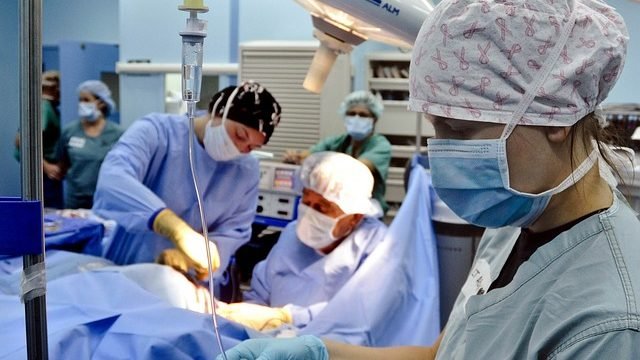
Medicine and Surgery are two fundamental aspects of healthcare that focus on diagnosing, treating, and preventing illnesses and injuries. Here’s a detailed overview of each:
Medicine
Medicine is the science and practice of diagnosing, treating, and preventing diseases and disorders. It encompasses a wide range of practices aimed at promoting health and well-being.
Key Components of Medicine:
- Diagnosis: This involves identifying a disease or condition based on symptoms, medical history, and diagnostic tests (such as blood tests, imaging studies, etc.).
- Treatment: Medical professionals utilize various methods to treat illnesses, including:
- Medications: Prescribing drugs to manage or cure diseases.
- Therapies: Non-drug interventions like physical therapy, occupational therapy, and counseling.
- Preventive Care: Strategies to prevent diseases, such as vaccinations, health screenings, and lifestyle counseling.
- Specializations: Medicine includes numerous specialties, such as:
- Internal Medicine: Focuses on adult diseases.
- Pediatrics: Care for children.
- Family Medicine: Comprehensive care for individuals and families across all ages.
- Psychiatry: Mental health diagnosis and treatment.
- Preventive Medicine: This branch emphasizes health promotion and disease prevention strategies, including wellness checks, immunizations, and health education.
Surgery
Surgery is a branch of medicine that involves the use of operative techniques to treat injuries, diseases, and deformities through manual and instrumental interventions.
Key Components of Surgery:
- Types of Surgery:
- Elective Surgery: Planned in advance and not urgent (e.g., cosmetic surgery, hernia repair).
- Emergency Surgery: Performed immediately to save life or preserve health (e.g., appendectomy, trauma surgery).
- Minimally Invasive Surgery: Techniques that use small incisions, often resulting in shorter recovery times (e.g., laparoscopic surgery).
- Open Surgery: Involves larger incisions and direct access to the area being treated.
- Surgical Specialties:
- General Surgery: Covers a broad range of surgical procedures.
- Orthopedic Surgery: Focuses on musculoskeletal issues.
- Neurosurgery: Involves surgery on the brain and nervous system.
- Cardiothoracic Surgery: Deals with conditions of the heart and chest.
- Surgical Procedures: These can vary widely, including:
- Diagnostic Surgery: Procedures to help diagnose a condition (e.g., biopsies).
- Curative Surgery: Aimed at removing disease (e.g., tumor excision).
- Palliative Surgery: Intended to relieve symptoms without curing the disease.
- Postoperative Care: After surgery, patients often require monitoring and care to manage pain, prevent infections, and ensure proper recovery.
The fields of medicine and surgery are vast, encompassing a wide range of careers that contribute to patient care, medical research, and health management. Whether you are interested in direct patient care, administrative roles, or specialized research, there is a multitude of paths to explore. This blog post provides a detailed overview of 55 careers related to medicine and surgery, highlighting the unique roles, responsibilities, and required qualifications for each.
55 Careers Related to Medicine and Surgery
1. Physician
Description: Physicians diagnose and treat illnesses and injuries. They may specialize in areas such as pediatrics, internal medicine, or surgery.
Education: Medical degree (MD or DO) and residency training in a chosen specialty.
2. Surgeon
Description: Surgeons perform operations to treat injuries, diseases, and deformities. They can specialize in areas such as orthopedic, neurosurgery, or cardiovascular surgery.
Education: Medical degree and completion of a surgical residency program.
3. Physician Assistant (PA)
Description: PAs provide healthcare services under the supervision of a physician, including examining patients, diagnosing illnesses, and prescribing medication.
Education: Master’s degree from an accredited PA program and certification.
4. Nurse Practitioner (NP)
Description: NPs are advanced practice registered nurses who provide care, prescribe medications, and manage patient treatment plans.
Education: Master’s or doctoral degree in nursing and national certification.
5. Registered Nurse (RN)
Description: RNs provide patient care, educate patients about health conditions, and coordinate care among healthcare teams.
Education: Associate’s or bachelor’s degree in nursing and a nursing license.
6. Medical Laboratory Technician
Description: These professionals conduct tests on blood, tissues, and other bodily fluids to help diagnose diseases.
Education: Associate’s degree in medical laboratory technology and certification.
7. Radiologic Technologist
Description: Radiologic technologists perform diagnostic imaging examinations, such as X-rays and CT scans.
Education: Associate’s degree in radiologic technology and licensure or certification.
8. Anesthesiologist
Description: Anesthesiologists administer anesthesia and monitor patients during surgery and other medical procedures.
Education: Medical degree and residency in anesthesiology.
9. Emergency Medical Technician (EMT)
Description: EMTs provide emergency medical care and transportation for patients in urgent situations.
Education: Completion of EMT training program and certification.
10. Paramedic
Description: Paramedics provide advanced emergency medical care and transportation for patients, often in pre-hospital settings.
Education: Advanced EMT training and certification.
11. Pharmacist
Description: Pharmacists dispense medications, advise patients on their proper use, and provide information on drug interactions.
Education: Doctor of Pharmacy (Pharm.D.) degree and licensure.
12. Occupational Therapist
Description: Occupational therapists help patients improve their ability to perform daily activities after injury or illness.
Education: Master’s or doctoral degree in occupational therapy and national certification.
13. Physical Therapist
Description: Physical therapists design rehabilitation programs to help patients regain movement and manage pain after injuries or surgeries.
Education: Doctor of Physical Therapy (DPT) degree and licensure.
14. Speech-Language Pathologist
Description: These professionals assess and treat communication disorders, including speech and language issues.
Education: Master’s degree in speech-language pathology and licensure.
15. Medical Assistant
Description: Medical assistants perform administrative and clinical tasks in healthcare settings, including scheduling appointments and taking vital signs.
Education: Certificate or diploma in medical assisting.
16. Health Information Technician
Description: Health information technicians manage and organize health data, ensuring accuracy and security.
Education: Associate’s degree in health information technology and certification.
17. Clinical Research Coordinator
Description: These professionals oversee clinical trials, ensuring compliance with regulatory requirements and protocols.
Education: Bachelor’s degree in a health-related field and relevant experience.
18. Medical Coder
Description: Medical coders translate healthcare services into codes for billing and insurance purposes.
Education: Certification in medical coding and knowledge of coding systems.
19. Radiologist
Description: Radiologists interpret medical images and provide diagnoses based on their findings.
Education: Medical degree and residency in radiology.
20. Dermatologist
Description: Dermatologists specialize in diagnosing and treating skin disorders and diseases.
Education: Medical degree and residency in dermatology.
21. Obstetrician/Gynecologist (OB/GYN)
Description: OB/GYNs provide care related to pregnancy and female reproductive health.
Education: Medical degree and residency in obstetrics and gynecology.
22. Cardiologist
Description: Cardiologists diagnose and treat heart and cardiovascular diseases.
Education: Medical degree and residency in internal medicine, followed by a fellowship in cardiology.
23. Neurologist
Description: Neurologists specialize in diagnosing and treating disorders of the nervous system.
Education: Medical degree and residency in neurology.
24. Psychiatrist
Description: Psychiatrists diagnose and treat mental health disorders, often prescribing medication and therapy.
Education: Medical degree and residency in psychiatry.
25. Surgeon’s Assistant
Description: Surgical assistants support surgeons during operations, preparing instruments and assisting with procedures.
Education: Surgical first assistant training or relevant experience.
26. Medical Scientist
Description: Medical scientists conduct research to improve patient care and develop new treatments.
Education: Doctoral degree in a related scientific field.
27. Biomedical Engineer
Description: Biomedical engineers design and develop medical devices and technologies to improve patient care.
Education: Bachelor’s or master’s degree in biomedical engineering.
28. Public Health Educator
Description: Public health educators promote health and wellness programs and educate communities about disease prevention.
Education: Bachelor’s degree in public health or health education.
29. Genetic Counselor
Description: Genetic counselors provide information and support to patients regarding genetic disorders and testing.
Education: Master’s degree in genetic counseling and certification.
30. Podiatrist
Description: Podiatrists diagnose and treat conditions related to the feet and lower extremities.
Education: Doctor of Podiatric Medicine (DPM) degree and residency training.
31. Nurse Anesthetist
Description: Certified Registered Nurse Anesthetists (CRNAs) administer anesthesia and provide anesthesia care.
Education: Master’s degree in nurse anesthesia and certification.
32. Surgical Technologist
Description: Surgical technologists assist during surgeries by preparing instruments and ensuring the sterile field is maintained.
Education: Certificate or associate’s degree in surgical technology.
33. Chiropractor
Description: Chiropractors diagnose and treat musculoskeletal disorders, primarily through manual adjustments and manipulation.
Education: Doctor of Chiropractic (D.C.) degree and state licensure.
34. Dietitian/Nutritionist
Description: Dietitians and nutritionists advise on dietary practices and develop nutrition programs for patients.
Education: Bachelor’s degree in nutrition and dietetics, along with licensure or certification.
35. Medical Illustrator
Description: Medical illustrators create visual representations of medical subjects for education, publications, and advertising.
Education: Bachelor’s degree in medical illustration or related field.
36. Forensic Pathologist
Description: Forensic pathologists investigate deaths and determine causes through autopsies.
Education: Medical degree, residency in pathology, and fellowship in forensic pathology.
37. Hospital Administrator
Description: Hospital administrators manage the operations of healthcare facilities, ensuring efficient services and compliance with regulations.
Education: Master’s degree in healthcare administration or business administration.
38. Clinical Psychologist
Description: Clinical psychologists diagnose and treat mental health issues through therapy and psychological assessment.
Education: Doctoral degree in psychology and state licensure.
39. Rehabilitation Counselor
Description: Rehabilitation counselors help individuals with disabilities achieve personal and professional goals.
Education: Master’s degree in rehabilitation counseling or a related field.
40. Health Services Manager
Description: Health services managers oversee specific departments or facilities, focusing on improving quality and efficiency in healthcare services.
Education: Bachelor’s or master’s degree in health services administration or public health.
41. Nuclear Medicine Technologist
Description: These technologists perform diagnostic imaging using radioactive materials to diagnose diseases.
Education: Associate’s degree in nuclear medicine technology and certification.
42. Medical Dosimetrist
Description: Medical dosimetrists calculate and plan radiation doses for cancer treatment.
Education: Bachelor’s degree in medical dosimetry or related field and certification.
43. Surgical Oncologist
Description: Surgical oncologists specialize in the surgical treatment of cancer and work as part of a cancer care team.
Education: Medical degree, residency in general surgery, and fellowship in surgical oncology.
44. Urologist
Description: Urologists diagnose and treat disorders of the urinary tract and male reproductive system.
Education: Medical degree and residency in urology.
45. Hospital Chaplain
Description: Hospital chaplains provide spiritual support and guidance to patients, families, and staff in healthcare settings.
Education: Master’s degree in divinity or theology and clinical pastoral education.
46. Orthopedic Surgeon
Description: Orthopedic surgeons specialize in diagnosing and treating musculoskeletal system issues through surgical and non-surgical methods.
Education: Medical degree and residency in orthopedic surgery.
47. Infectious Disease Specialist
Description: These specialists focus on diagnosing and treating infectious diseases and advising on infection control.
Education: Medical degree, residency in internal medicine, and fellowship in infectious disease.
48. Anatomic Pathologist
Description: Anatomic pathologists examine tissue samples to diagnose diseases and conditions.
Education: Medical degree, residency in pathology, and board certification.
49. Athletic Trainer
Description: Athletic trainers prevent and treat sports-related injuries and provide rehabilitation programs for athletes.
Education: Bachelor’s or master’s degree in athletic training and certification.
50. Acupuncturist
Description: Acupuncturists use traditional Chinese medicine techniques to treat various health conditions through needle therapy.
Education: Master’s degree in acupuncture or related field and state licensure.
51. Medical Writer
Description: Medical writers create documents related to medical research, regulatory submissions, and educational materials.
Education: Bachelor’s degree in life sciences or related field and writing experience.
52. Bioethicist
Description: Bioethicists analyze ethical issues in healthcare and medical research, providing guidance on moral dilemmas.
Education: Advanced degree in bioethics or philosophy and relevant experience.
53. Histotechnologist
Description: Histotechnologists prepare tissue samples for microscopic examination to assist in diagnosing diseases.
Education: Associate’s or bachelor’s degree in histotechnology and certification.
54. Medical Sales Representative
Description: Medical sales representatives promote and sell medical products and devices to healthcare providers.
Education: Bachelor’s degree in business, marketing, or a related field.
55. Clinical Trial Manager
Description: Clinical trial managers oversee clinical research trials, ensuring compliance and efficiency in study protocols.
Education: Bachelor’s or master’s degree in a health-related field and experience in clinical research.
Frequently Asked Questions – FAQs
In this section, I will provide you with FAQs and answers on “Careers Related to Medicine and Surgery”. Keep on reading friend.
1. What types of careers are available in the field of medicine and surgery?
The field of medicine and surgery offers a wide variety of careers, including physicians, surgeons, physician assistants, nurse practitioners, medical laboratory technicians, pharmacists, radiologic technologists, and many others. These roles can be categorized into direct patient care, support services, research, and healthcare administration.
2. What educational qualifications are typically required for a career in medicine?
Most careers in medicine require at least a bachelor’s degree, followed by specialized education. Physicians need a medical degree (MD or DO) and complete a residency program. Other roles, like physician assistants and nurse practitioners, typically require a master’s degree in their respective fields. Some positions, such as medical assistants, may require only a certificate or diploma.
3. Are there non-clinical careers in medicine and surgery?
Yes, there are numerous non-clinical careers in the field, including healthcare administration, medical writing, medical sales, clinical research, and health information management. These roles focus on the business, regulatory, or technological aspects of healthcare.
4. How can I gain experience in the medical field?
Gaining experience can involve volunteering at hospitals or clinics, shadowing healthcare professionals, participating in internships, or enrolling in relevant educational programs. Many medical schools and healthcare training programs also offer opportunities for hands-on experience.
5. What are the job prospects for careers in medicine and surgery?
Job prospects in medicine and surgery are generally strong, with many positions experiencing high demand due to an aging population and increasing healthcare needs. Certain specialties, like nursing, physician assistants, and mental health professionals, are particularly in demand.



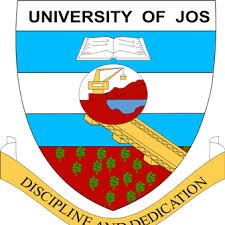










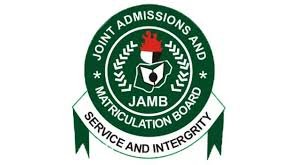

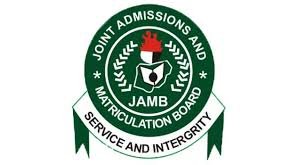
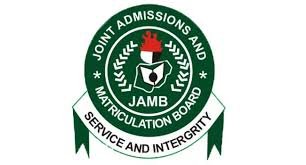
![EKSU Cut Off Mark 2024/2025 [All Courses] EKSU Cut Off Mark 2024/2025 [All Courses]](https://allcampusplug.com/wp-content/uploads/2024/11/EKSU-1-208x240.jpeg)
![YABATECH Cut Off Mark 2024/2025 [All Courses] YABATECH Cut Off Mark 2024/2025 [All Courses]](https://allcampusplug.com/wp-content/uploads/2024/10/YABATECH-1.png)
![UNILESA Cut Off Mark 2024/2025 [All Courses] UNILESA Cut Off Mark 2024/2025 [All Courses]](https://allcampusplug.com/wp-content/uploads/2024/11/UNILESA-1.jpeg)
![FUTB Cut Off Mark 2024/2025 [All Courses] FUTB Cut Off Mark 2024/2025 [All Courses]](https://allcampusplug.com/wp-content/uploads/2024/10/FUTB-1.jpeg)
![FUBK Cut Off Mark 2024/2025 [All Courses] FUBK Cut Off Mark 2024/2025 [All Courses]](https://allcampusplug.com/wp-content/uploads/2024/09/FUBK-1.jpeg)